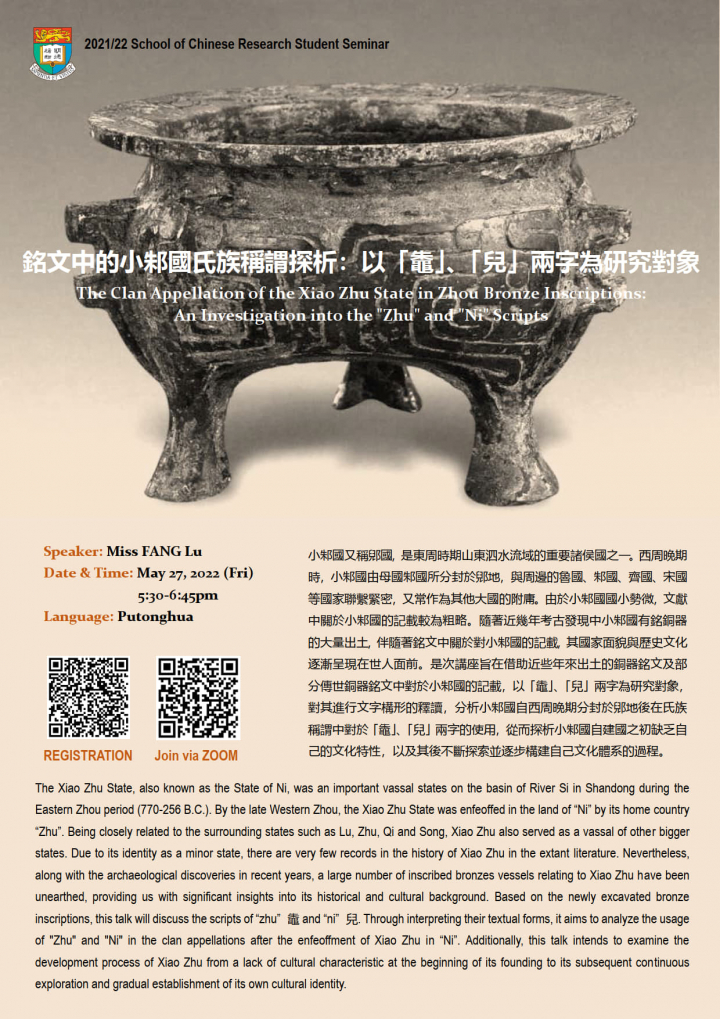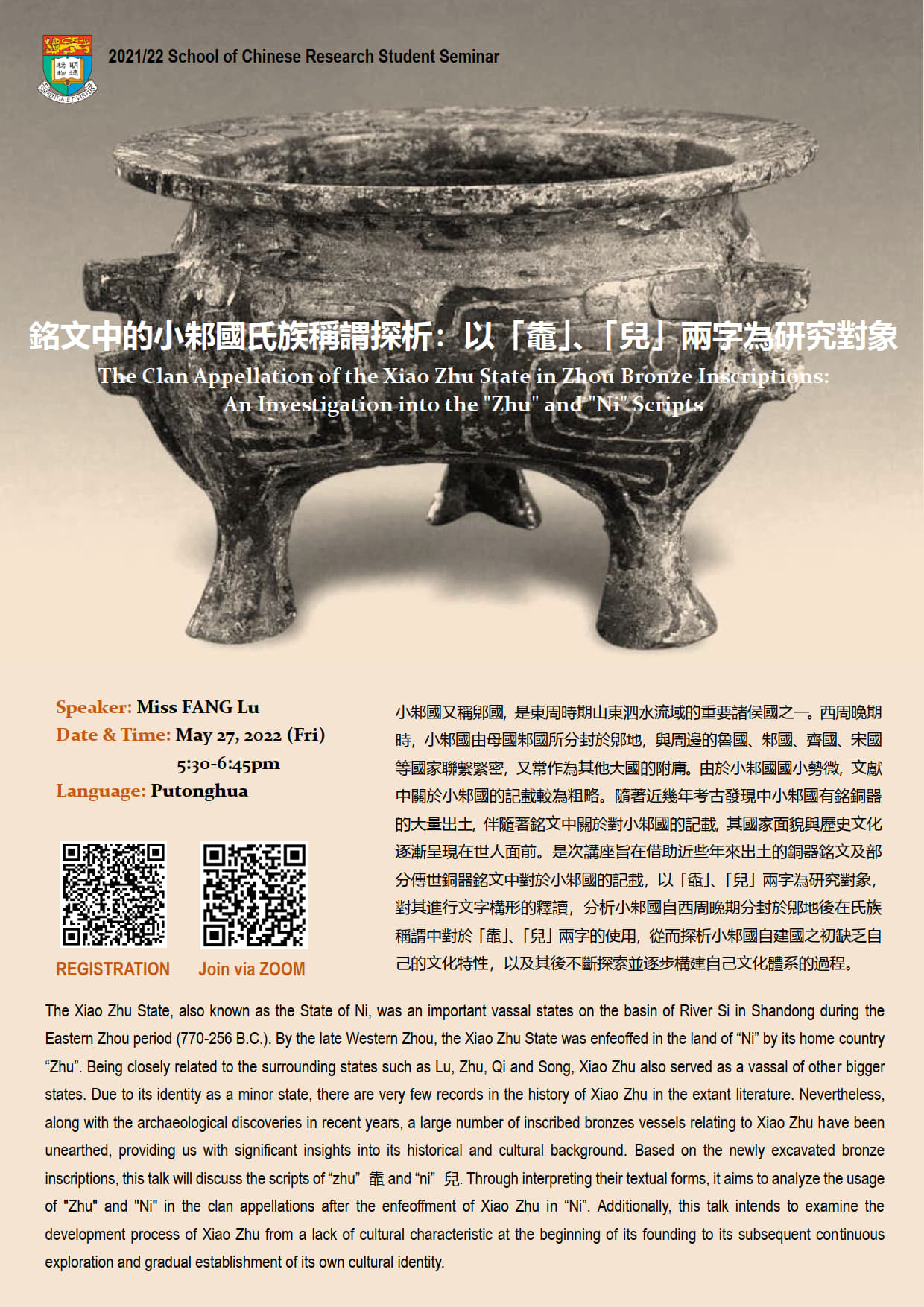銘文中的小邾國氏族稱謂探析:以「鼄」、「兒」兩字為研究對象 The Clan Appellation of the Xiao Zhu State in Zhou Bronze Inscriptions: An Investigation into the "Zhu" and "Ni" Scripts

2021/22 School of Chinese Research Student Seminar
銘文中的小邾國氏族稱謂探析:以「鼄」、「兒」兩字為研究對象
The Clan Appellation of the Xiao Zhu State in Zhou Bronze Inscriptions:
An Investigation into the "Zhu" and "Ni" Scripts
Speaker: Miss FANG Lu
Date & Time: May 27, 2022 (Fri) 5:30-6:45pm
Language: Putonghua
Mode of Delivery: 100% Online (via Zoom)
Zoom Meeting Link:
https://hku.zoom.us/j/91771674507?pwd=TzZRVGFYTEwxR25lVTZYRVJreHE3UT09
Meeting ID: 917 7167 4507
Password: 963435
小邾國又稱郳國,是東周時期山東泗水流域的重要諸侯國之一。西周晚期時,小邾國由母國邾國所分封於郳地,與周邊的魯國、邾國、齊國、宋國等國家聯繫緊密,又常作為其他大國的附庸。由於小邾國國小勢微,文獻中關於小邾國的記載較為粗略。隨著近幾年考古發現中小邾國有銘銅器的大量出土,伴隨著銘文中關於對小邾國的記載,其國家面貌與歷史文化逐漸呈現在世人面前。是次講座旨在借助近些年來出土的銅器銘文及部分傳世銅器銘文中對於小邾國的記載,以「鼄」、「兒」兩字為研究對象,對其進行文字構形的釋讀,分析小邾國自西周晚期分封於郳地後在氏族稱謂中對於「鼄」、「兒」兩字的使用,從而探析小邾國自建國之初缺乏自己的文化特性,以及其後不斷探索並逐步構建自己文化體系的過程。
The Xiao Zhu State, also known as the State of Ni, was an important vassal states on the basin of River Si in Shandong during the Eastern Zhou period (770-256 B.C.). By the late Western Zhou, the Xiao Zhu State was enfeoffed in the land of “Ni” by its home country “Zhu”. Being closely related to the surrounding states such as Lu, Zhu, Qi and Song, Xiao Zhu also served as a vassal of other bigger states. Due to its identity as a minor state, there are very few records in the history of Xiao Zhu in the extant literature. Nevertheless, along with the archaeological discoveries in recent years, a large number of inscribed bronzes vessels relating to Xiao Zhu have been unearthed, providing us with significant insights into its historical and cultural background. Based on the newly excavated bronze inscriptions, this talk will discuss the scripts of “zhu” 鼄and “ni” 兒. Through interpreting their textual forms, it aims to analyze the usage of "Zhu" and "Ni" in the clan appellations after the enfeoffment of Xiao Zhu in “Ni”. Additionally, this talk intends to examine the development process of Xiao Zhu from a lack of cultural characteristic at the beginning of its founding to its subsequent continuous exploration and gradual establishment of its own cultural identity.
ALL are welcome*
*Pre-registration (Click HERE) is requested.








